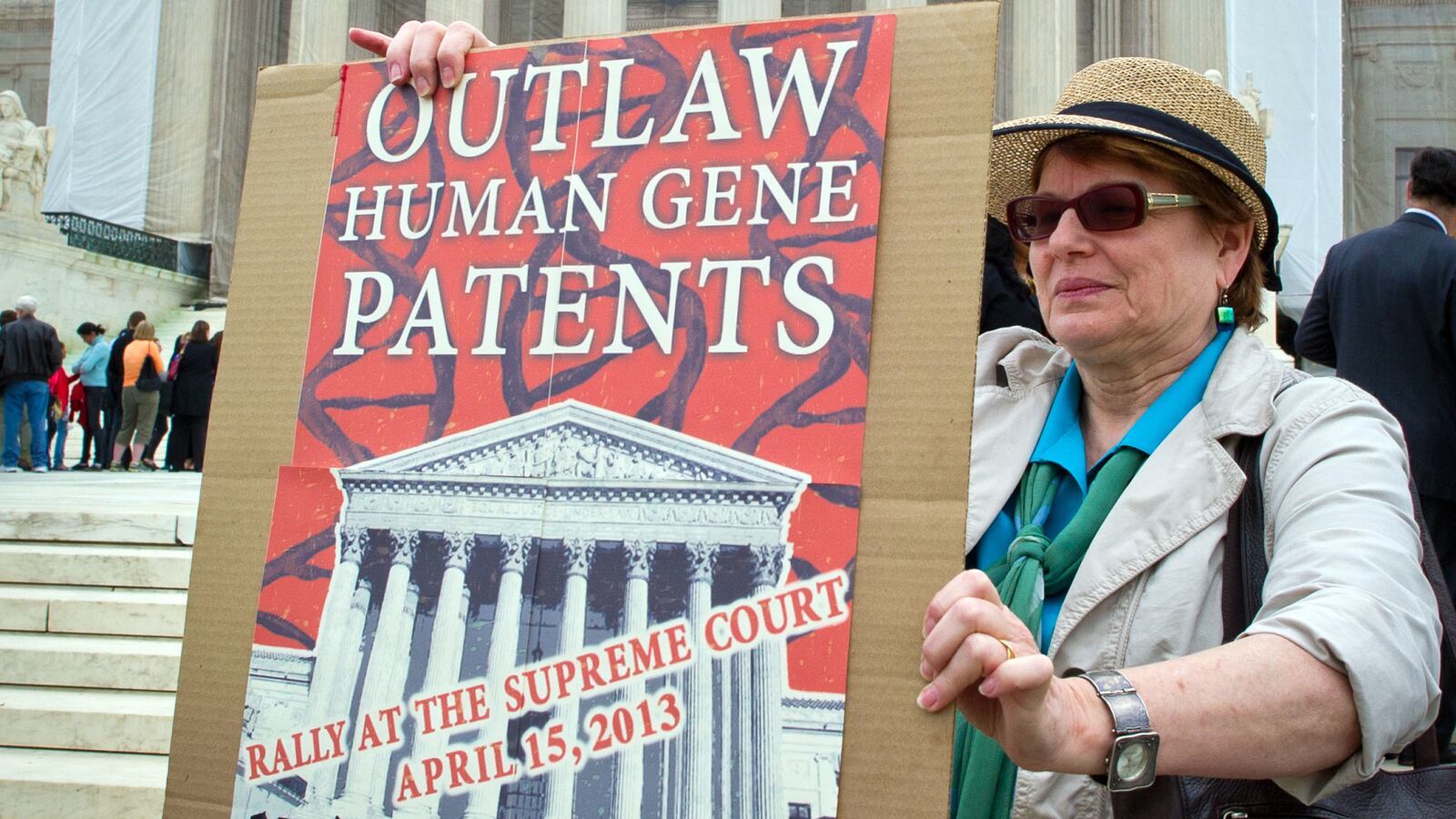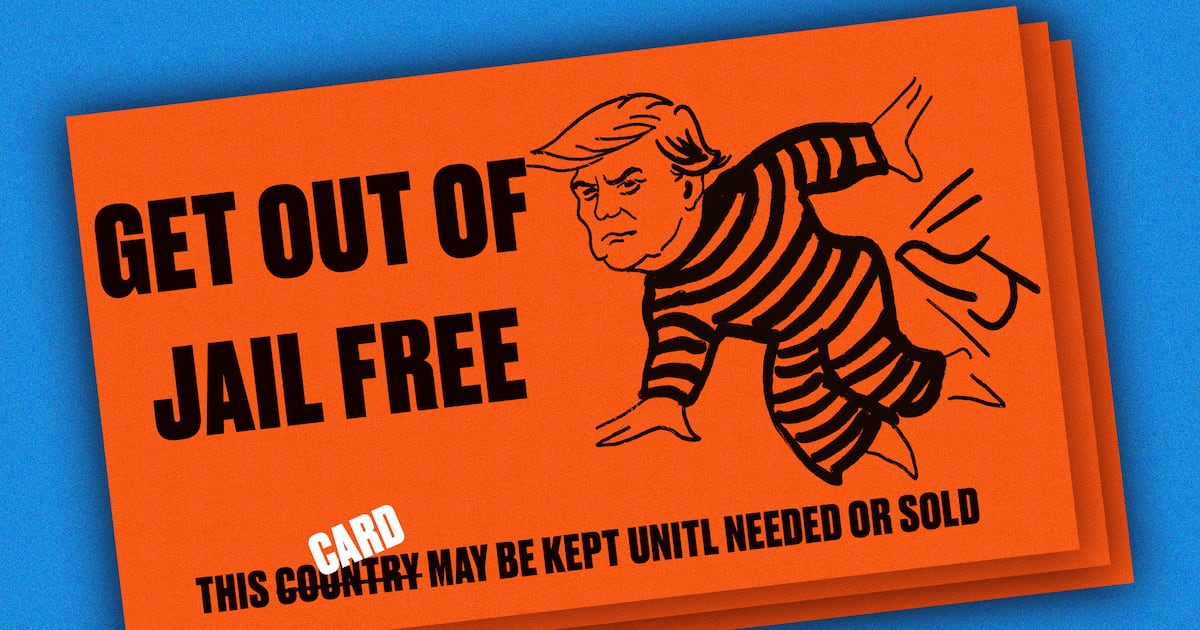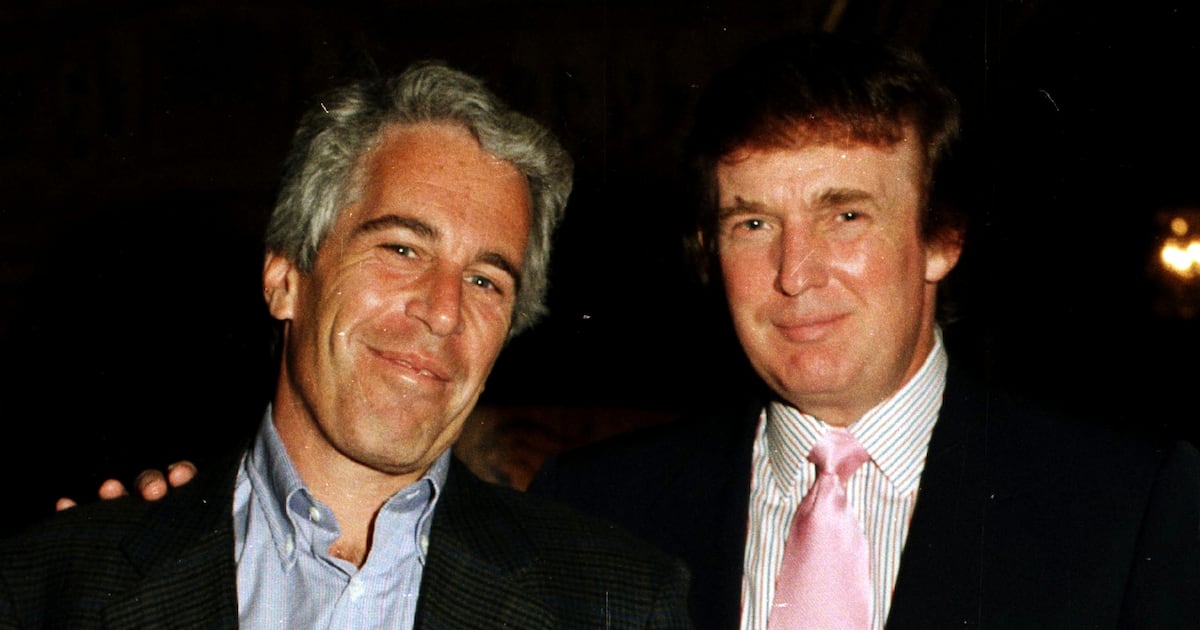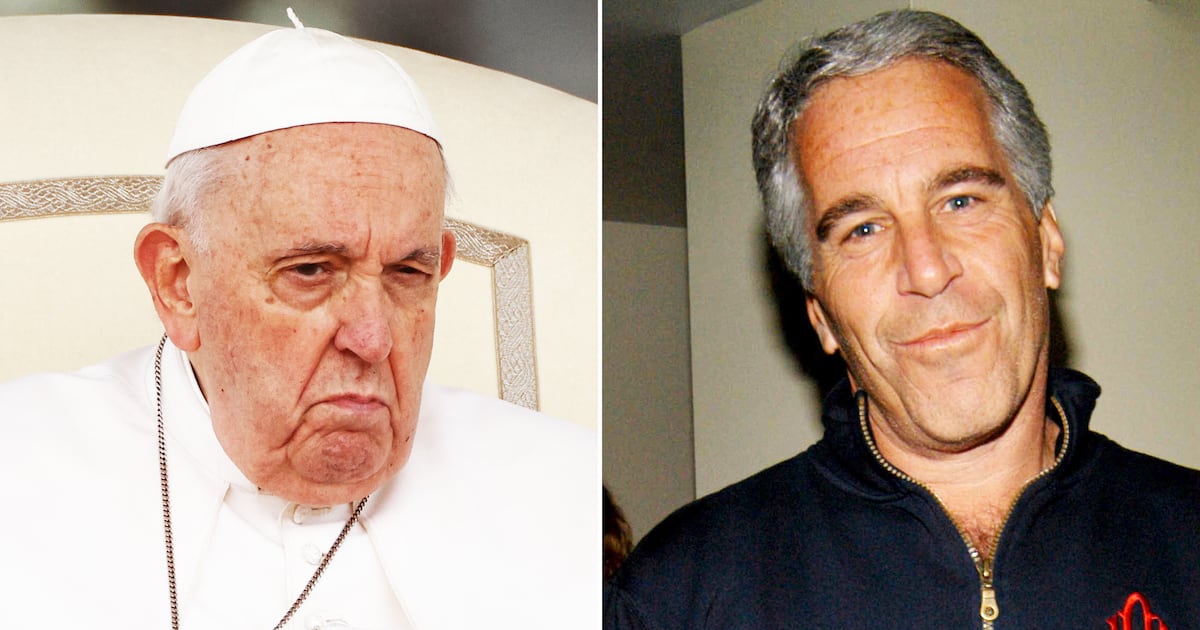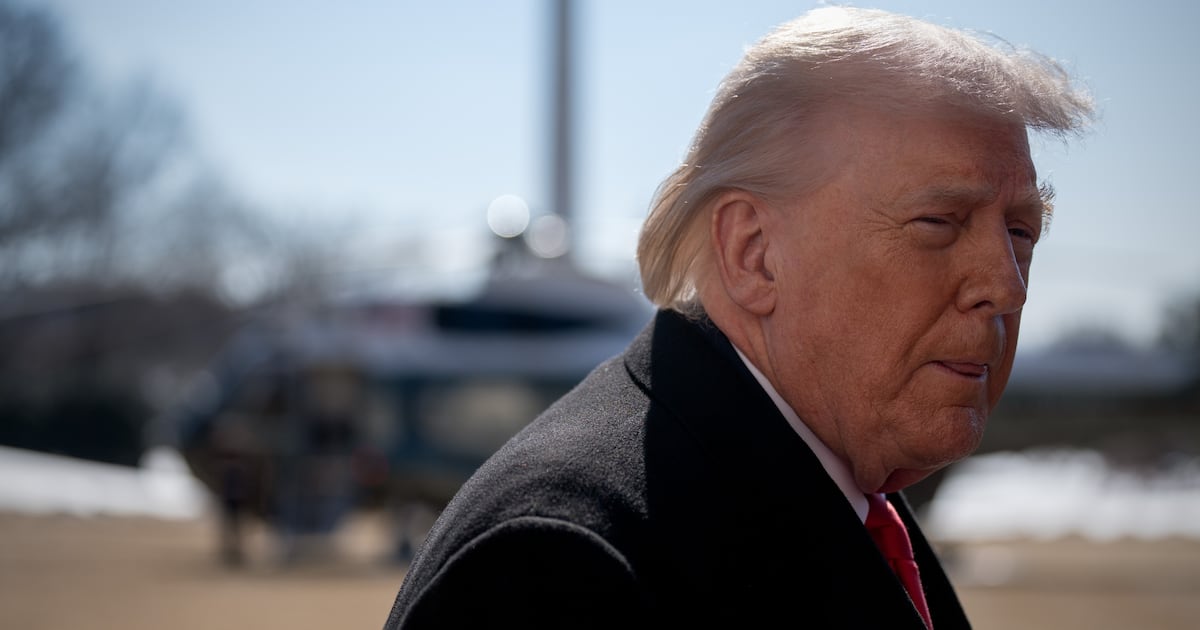This morning the Supreme Court handed down a big ruling in the biotech world: companies can patent synthetic DNA, but they cannot patent genes that they've identified from natural human chromosomes. This has big implications for how biotech research will fare in the future.
The case centers around Myriad, which has patents on BRCA1 and BRCA2, genes that are linked to a very high risk of breast cancer. This has been in the news a great deal recently because of Angelina Jolie’s decision to have a double mastectomy after testing revealed that she carried the BRCA1 variant. Myriad’s patents make this testing more expensive than it would be if the information were in the public domain.
As a matter of law, the Supreme Court justices seem to me to have gotten it right. You can’t patent the law of gravity, no matter how long it took you to puzzle out the math. Identifying patterns in human genes seems very similar to identifying natural laws, which can’t be patented. Myriad's argument—that its patent was on the copies of human DNA that it made in order to test them—is rather thin.
The economics, however, are trickier.

It's expensive to do good research that links gene variants to disease. It will continue to be expensive, even in our Big Data future, because there's going to be a lot of careful checking and record-keeping involved. Maybe some day we'll have medical records so excellent that you can just plug in the search parameters you want and have a computer spit out gene variants that seem to be associated. But that's a long, long, long way off. In the meantime, the Supreme Court's ruling just outlawed the business model of companies like Myriad. A lot of invective has been thrown their way, but that one company spends about $50 million a year on R&D.
Will the slack be picked up by academic labs? A lot of research gets done there now, of course. But you don't like to see research lose any income stream. We may need to think about alternatives that could substitute for the loss of patent protection on these discoveries.
One way, of course, is to simply throw more federal money into research grants. Or we could investigate prizes: millions of dollars for anyone who identifies a gene that helps us target a specific disease process. The problem is with setting the value of the rewards—what constitutes a disease process worth targeting, and how do we know when we've found a worthwhile connection? Companies have an easy answer to that: "Someone will pay me to test for it." Governments have to consult more nebulous standards. Investors may not be willing to waste money on those standards—or they may be too willing, because we've set the price too high. Or we may simply spend a lot of money on stuff that turns out to not be all that useful.
Still, the ruling is what it is. It was unanimous, which means that it's unlikely to be overturned by any future court in my lifetime. So even if you think that it was better for society to have patents on genes from natural DNA, the fact is that we now don't. We should start thinking about substitutes as soon as possible.

